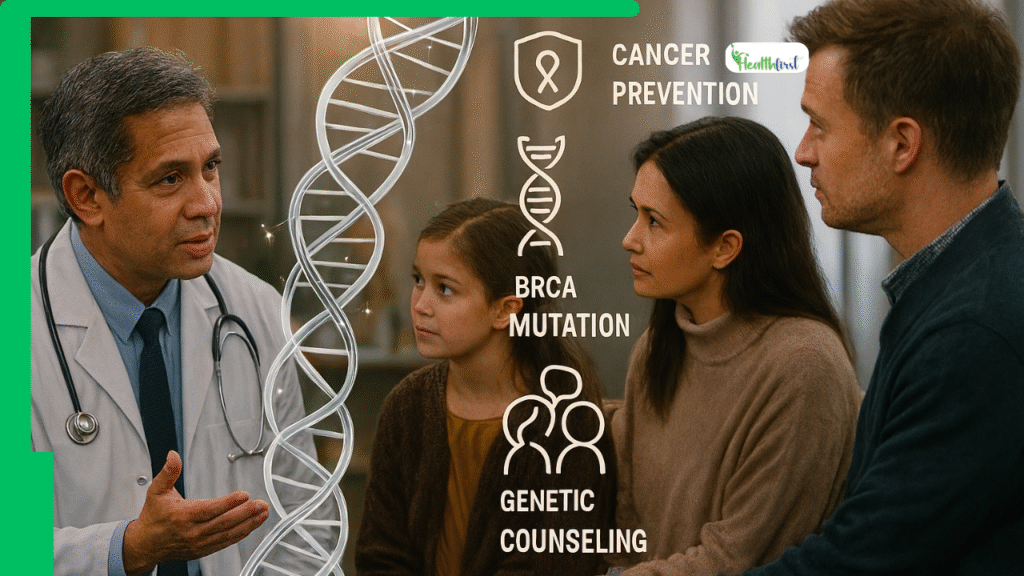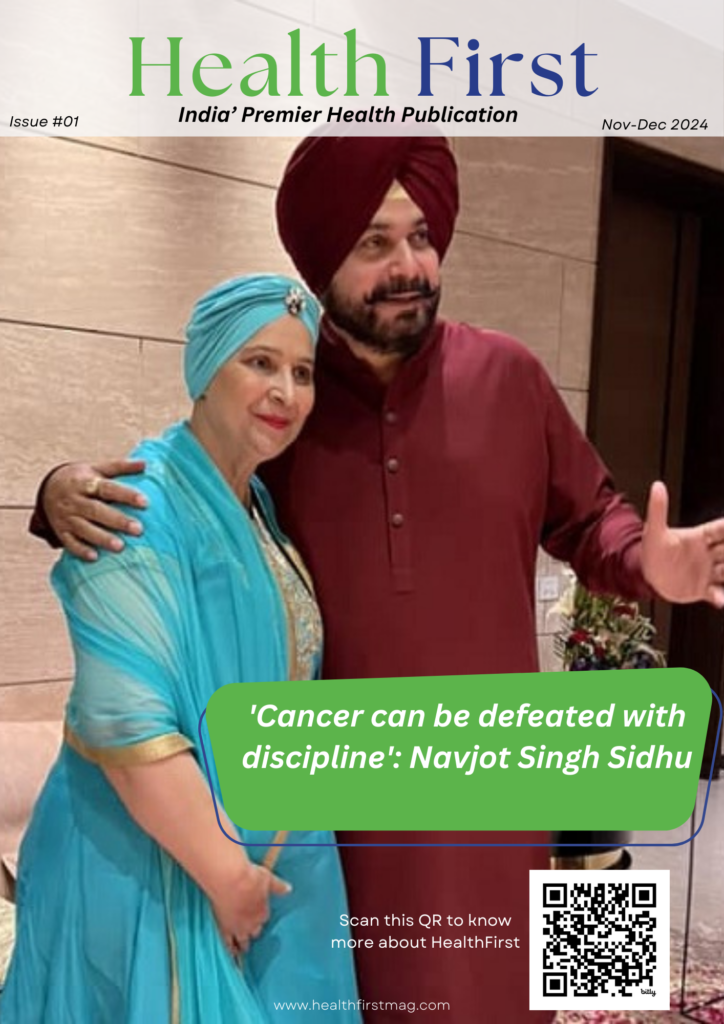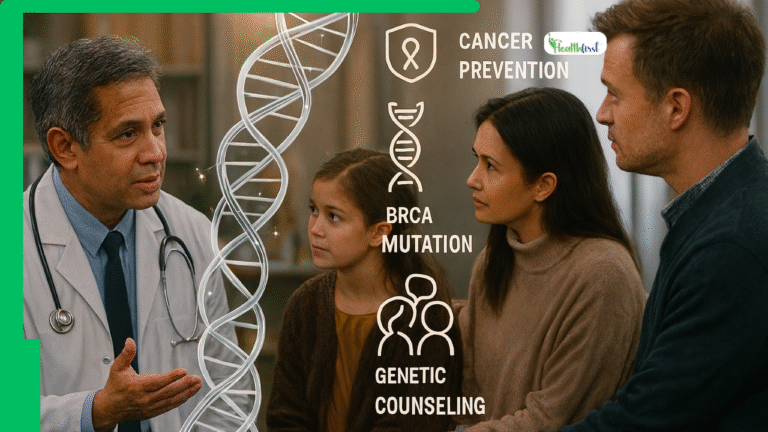Dr Abhishek Charan, Consultant Medical Oncology, HCG Hospital & Jaipur
Genetic testing for cancer is becoming more common. Doctors now use these tests to understand whether certain cancers are inherited, how best to treat them, and what steps family members can take to lower their own risk. But with this growth comes a lot of confusion and misinformation. Many people have fears or mistaken ideas about what genetic testing can actually tell them.
In this article, we’ll break down some of the most common myths and share the facts—based on what research tells us.
Myth 1: If my test is negative, I don’t need to worry about cancer.
Fact: A negative genetic test does not mean zero risk. Most cancers are not inherited—only about 5–10% of cancers are linked to strong hereditary gene mutations. A negative result simply means that the test did not find any of the known harmful changes in the genes it looked at. You could still develop cancer for other reasons, such as environment, lifestyle, or random changes in cells over time.
That’s why doctors look at the whole picture—family history, lifestyle factors, and medical history—not just the test result.
Myth 2: A positive result means I will definitely get cancer.
Fact: A positive result means your risk is higher, but it doesn’t guarantee cancer. For example, women with a BRCA1 mutation may have up to a 70% lifetime risk of breast cancer—but that still means some carriers never develop the disease.
The good news is that knowing your risk lets you act early—through extra screening, preventive surgery, lifestyle changes, or medications that reduce risk
Myth 3: A VUS is the same as a positive result.
Fact: A “variant of uncertain significance” (VUS) means scientists found a change in your DNA, but they don’t yet know if it’s harmful or harmless. Most VUS results turn out to be harmless once more research is done.
It’s very important to understand that a VUS is not the same as testing positive for a cancer-causing mutation. Doctors and genetic counselors usually recommend treating VUS results as “uncertain” and avoiding big medical decisions based on them alone.
Myth 4: Genetic testing only matters if I have a strong family history of cancer.
Fact: Family history is important, but it’s not everything. Some people inherit harmful genes even without obvious cancer patterns in the family. This can happen if families are small, if relatives passed away young from other causes, or if cancers appear in genders that are less obvious (for example, men carrying BRCA1 or BRCA2 mutations).
Because of this, experts now recommend germline testing for many people who have cancer, regardless of family history. A result can guide treatment, such as using special drugs for BRCA-positive cancers, and it can help relatives decide on their own testing.
Myth 5: Once I’ve tested, my results never change.
Fact: Science is moving quickly. A variant that’s uncertain today could be reclassified tomorrow as harmful or harmless. Many labs recheck variants regularly and issue updates when new knowledge is available. Patients should ask their doctor or counselor how they’ll be notified about reclassified results.
Myth 6: If I test positive, my family should automatically be tested too.
Fact: Identifying a harmful gene in one person opens the door to “cascade testing”, where close relatives can get tested for the same gene. But this doesn’t happen on its own—someone has to share the information, and relatives have to decide to get tested.
Unfortunately, many families never complete this process. Support from doctors, genetic counselors, or advocacy groups can make it easier to talk with relatives and encourage testing. For example, at companies like Strand Life Sciences, results are always paired with expert genetic counseling sessions, so patients are not left to interpret them on their own.
Myth 7: Genetic testing causes more harm than good.
Fact: It’s true that testing can cause stress, especially when results are uncertain. But research shows that with good counseling, most people handle results well, and many feel more in control of their health. Having clear information can be empowering—it helps people decide on screening, prevention, and family planning.
Myth 8: My genetic data will stay private.
Fact: There are legal protections, but they have limits. Although genetic data is considered personal data in India, it is uniquely identifying, and once shared, it is difficult to guarantee complete privacy. While clinical labs and hospitals must follow strict confidentiality standards, risks arise when data is used for research, shared with third parties, or uploaded to consumer platforms. In India, protections exist—such as a 2018 Delhi High Court ruling that barred insurers from excluding people based on genetic disorders—but there is still no dedicated national law like the U.S. Genetic Information Nondiscrimination Act (GINA) to regulate use across all contexts.
Most companies like Strand Life Sciences have strict safeguards in place to protect sensitive data: test results are released only to the ordering physician or with the patient’s explicit consent, third-party access is tightly restricted, and personal data is never sold or shared for marketing.
So, what’s the takeaway?
Genetic testing for cancer is powerful, but only when it comes with the right conversation.
Before testing, you should know:
- What the test can and can’t tell you.
- The possibility of unclear results (like a VUS).
- How results might affect your family.
- What protections you have and don’t have regarding insurance and privacy.
- How to follow up in the future as science changes.
With this context, test results are more than just numbers on a page—they can provide clarity and reassurance at moments when people need it most.
Genetic testing isn’t about predicting the future with certainty; it’s about giving you clearer information to make the choices that feel right for you and your family.









